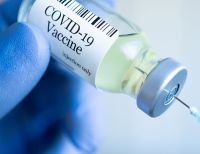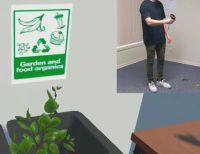11 July 2024
 Water scientists from Australia and China have proposed a more effective method of removing organic pesticides from drinking water, reducing the risk of contamination and potential health problems.
Water scientists from Australia and China have proposed a more effective method of removing organic pesticides from drinking water, reducing the risk of contamination and potential health problems.
A 62% rise in global pesticide use in the past 20 years has escalated fears that many of these chemicals could end up in our waterways, causing cancer.
Powdered activated carbon (PAC) is currently used to remove organic pesticides from drinking water, but the process is costly, time consuming and not 100% effective.
University of South Australia water researcher Professor Jinming Duan has collaborated with his former PhD student, Dr Wei Li of Xi’an University of Architecture & Technology and Chinese colleagues in a series of experiments to improve the process.
The researchers found that reducing the PAC particles from the existing commercial size of 38 μm (one millionth of a metre) to 6 μm, up to 75% less powder was needed to remove six common pesticides, achieving significant water treatment savings.
At 6 μm, the PAC particles are still large enough to be filtered out after the adsorption process, ensuring they do not end up in the drinking water after toxic pesticides are removed.
Prof Duan says pollutants in our waterways are projected to increase in coming decades as the world’s population and industrial development grows.
“It’s therefore critical that we develop cost-effective treatment processes to ensure our waterways remain safe,” he says.
Their findings have been published in the journal Chemosphere.
“Pesticides cannot be removed using conventional water treatment processes such as flocculation, sedimentation and filtration. Powdered activated carbon does the job, but the existing methods have limitations. Our study has identified how we can make this process more efficient.”
Approximately 3.54 million metric tons of pesticides were applied to agricultural crops worldwide in 2021, according to the Statista Research Department.
Worryingly, despite efforts to increase their efficiency, it is estimated that only 10% of pesticides reach their target pests, with most of the chemicals remaining on plant surfaces or entering the environment, including the soil, waterways and atmosphere.
Toxicological studies have suggested that long-term exposure to low levels of pesticides – primarily through diet or drinking water – could increase the risks of cancer and other diseases.
“This is why it is important to reduce their levels to as low as feasibly possible,” Prof Duan says.
The researchers also hope to explore how super-fine activated carbon could be used to remove toxic polyfluoroalkyl substances (PFAS) and perfluorinated compounds (PFCs) found in many consumer products, which have been linked to adverse health impacts.
“The effectiveness and feasibility of ball-milled powdered activated carbon (BPAC) for removal of organic pesticides in conventional drinking water treatment process” is published in Chemosphere.
DOI: 10.1016/j.chemosphere.2024.142229
…………………………………………………………………………………………………………………………
Contact for interview: Professor Jinming Duan E: [email protected]
Media contact: Candy Gibson M: +61 467 255 684 E: [email protected]
















